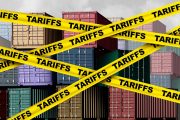
As the House was considering the Economic Growth Regulatory Relief and Consumer Protection Act — a weak Dodd-Frank deregulation bill passed earlier by the Senate — House Financial Services Committee Chairman Jeb Hensarling (R-Texas) pressed for more drastic changes. Long opposed to the original Dodd-Frank law enacted in response to the financial collapse that triggered the Great Recession of 2008-09, Hensarling was rounding up support for additional changes to the law. One of the most pernicious pieces of Dodd-Frank — the Consumer Financial Protection Bureau invented by far-left Senator Elizabeth Warren (D-Mass.) — remained untouched by the compromise bill passed by the Senate and Hensarling wanted to do something about it.
That is, until he got a call from the president, who said “Jeb, I want the bill now.” In exchange for backing off, Hensarling received assurances from Senate Majority Leader Mitch McConnell (R-Ky.) that he would bring a bill containing more Dodd-Frank deregulations to the Senate floor before the November elections.
And so, on Tuesday, by a vote of 258-159, the Dodd-Frank deregulation bill passed the House in the same form as it passed the Senate earlier, and is headed for the president’s desk. White House officials said that Trump will sign it before the Memorial Day weekend, perhaps sooner.
The bill falls far short of dismantling the original law, which has throttled banks with additional regulations, even those banks that had nothing to do with the meltdown in 2008. As Hensarling himself admitted following his conversation with the president, “I wish it did gut Dodd-Frank. It didn’t.”
What the watered-down bill does is raise the “asset threshold” for large banks — those deemed “too big to fail” — from $50 billion in assets to $250 billion, thus relaxing some federal banking oversight rules on banks such as BNY Mellon, Citigroup, American Express, and SunTrust.
It eases somewhat various Dodd-Frank regulations on “community” banks — those with less than $10 billion in assets — which some claim will allow them to offer more banking services including loans that were limited before. It also loosens minimum federal standards for qualifying for certain home loans, allowing more small banks and credit unions to make more of such loans.
One of the 33 House Democrats who crossed party lines to support Republicans in passing the bill on Tuesday was New Jersey Representative Josh Gottheimer, who said, “The measure provides targeted relief to community banks and credit unions around the country, helping residents of [my district] by spurring business growth and expanding access to credit and loans, while protecting the key safeguards [in the original Dodd-Frank law] in place.”
New Jersey Republican Representative Leonard Lance agreed: “Community banks had nothing to do with the 2008 financial crisis but have been forced out of business across New Jersey because of one-size-fits-all regulations.”
And John McWeeney, president and CEO of NJ Bankers, added: “There are hundreds and hundreds of rules that came out of Dodd-Frank. No one specific rule in and of itself is a tremendous burden, but when you put them all together, particularly on a small community bank that may only have a small staff of people, it just buries them.”
The bill leaves in place most of Dodd-Frank’s major planks, including emergency government powers to regulate the banks along with curbs on trading in derivatives. It leaves in place the Consumer Financial Protection Bureau as noted above, and the Orderly Liquidation Authority that gives the government the power to take over failing financial firms. It also leaves cemented into place the Financial Stability Oversight Council and its powers to designate which financial firms should be subject to stricter regulation.
This was necessary to get bipartisan support for the bill that Hensarling didn’t like but the president demanded. As Representative French Hill (R-Ark.) said, “Could it have done more? Sure. But Senator [Mike] Crapo [the prime driver behind passing the Senate bill] should be congratulated for producing a bill in these partisan times.” A senior White House official (unnamed by the Wall Street Journal) said that the president “recognized that this was about as much as we could get.”
As Isaac Boltansky, Compass Point director of policy research, said, “Passage of [the bill] is an important mile marker, but the hyperbolic rhetoric coupled with only modest Democratic support suggest that this may be the only financial policy bill of consequence for quite some time.”
Unless, of course, the midterm elections turn out the wimps and the RINOs and replace them with constitutionalists. And then serious restoration of the proper role of government just might begin, perhaps with repeal of Dodd-Frank and its unconstitutional and unaccountable Consumer Financial Protection Bureau as one of its first objectives.
An Ivy League graduate and former investment advisor, Bob is a regular contributor to The New American magazine and blogs frequently at LightFromTheRight.com, primarily on economics and politics. He can be reached at [email protected].
Related articles:
Taming the Tyranny of the Agency
Unaccountable CFPB Ruled Constitutional; Spends Millions on Office Makeovers




